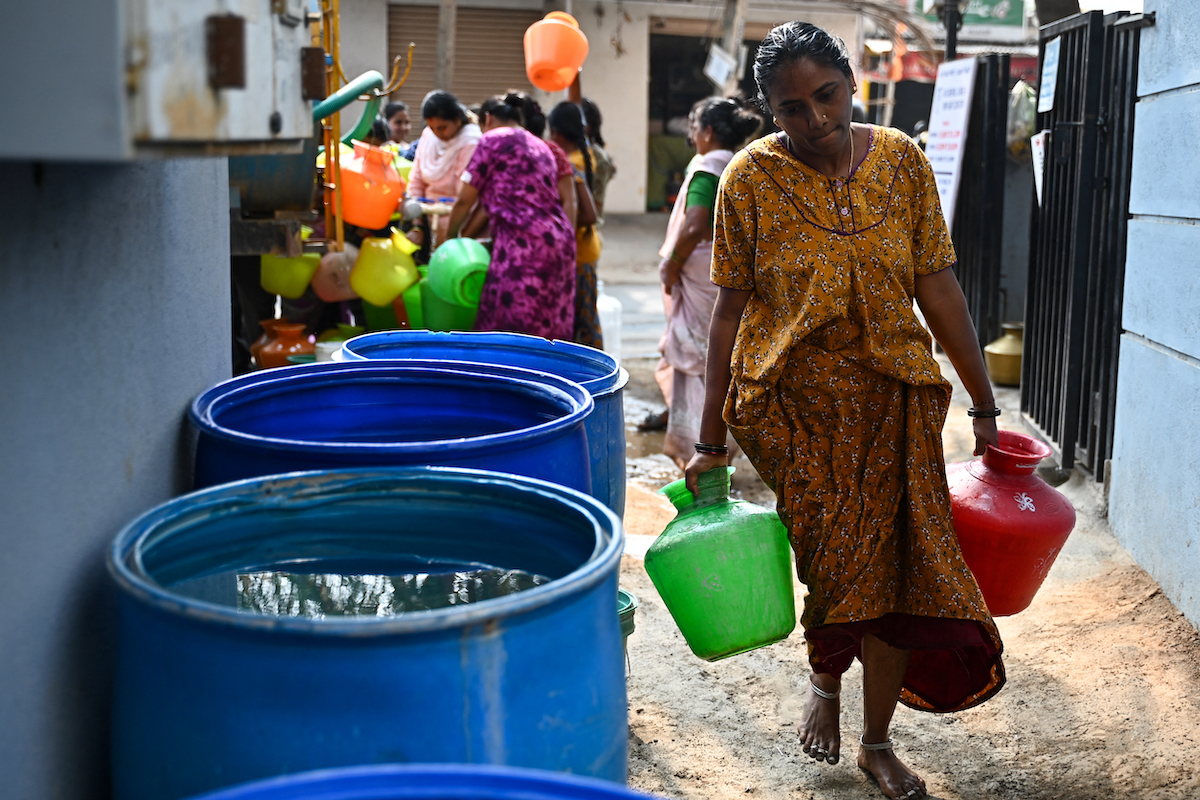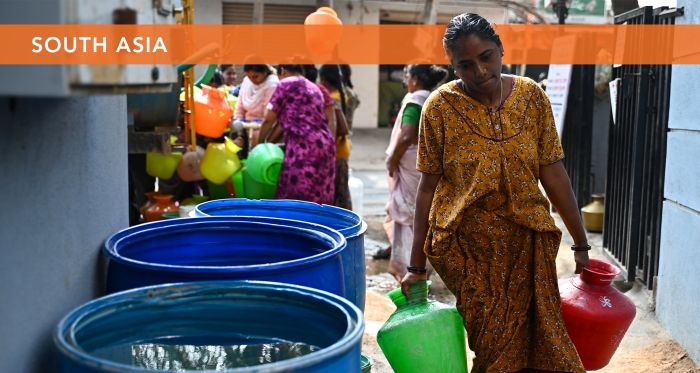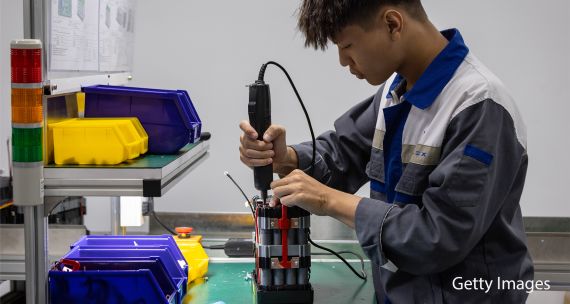The Takeaway
The south Indian city of Bengaluru (Bangalore) — the ‘Silicon Valley of India’ — is grappling with a severe water crisis. The capital of the southern state of Karnataka, Bengaluru has been hit by an unusually hot February and March and poor rainfall, a situation that is expected to worsen as freshwater resources are depleted and heat wave-like conditions continue to ravage the city’s 13 million residents.

As one of the world’s fastest-growing cities, Bengaluru is home to India’s US$194-billion information technology services industry, and hosts global firms like Google and Walmart and Canadian firms like Lululemon Athletica and the Hudson’s Bay Company. With many businesses experiencing operational and supply chain challenges, the current ecological emergency also raises the alarm about the city’s future as an economic and tech hub. As Bengaluru residents voted on April 26 in India’s massive seven-phase national election, the water crisis was dominating the lives of this tech city’s electorate.
In Brief
- Bengaluru’s population has tripled since 1990, as it transformed itself into a major tech hub. This growth has massively strained the city’s natural resources, with lakes drying up and forests being cleared for urbanization.
- The steep decline in groundwater levels and the inability of municipal pipelines to meet burgeoning needs have led to a scarcity of running water in the city’s dwellings and prompted residents to turn to private water tanker services to purchase water for daily use. More than 1,600 tankers belonging to roughly 600 water-supply firms are supplying water across the city.
- The state government has now taken control of these private water tankers to prevent prices from soaring further. But critics point out that many private tanker services have managed to defy the government’s efforts, and prices have continued to skyrocket, making this basic necessity increasingly unaffordable for many. Since March, residents reportedly have been getting water from tankers only every one or two weeks as local authorities continue to urge them to limit their water usage.
- The crisis has inflamed partisan rancour and generated voter apathy in the city during India’s crucial national elections, which are currently underway (through June 1). Voters in one of the city’s posh neighbourhoods said they would boycott the national elections to protest government inaction on the city’s dwindling water supply.
Implications
Water crisis provokes partisan bickering during vital elections. A political blame game has broken out between Indian Prime Minister Narendra Modi’s Bharatiya Janata Party (BJP), which leads the central government, and the Congress Party, which heads Karnataka’s state government. While both parties have raised the water crisis in their city-level campaigns, ecological and climate concerns have not resonated as national-level issues. Meanwhile, voters in Bengaluru are emphasizing that such issues are existential, as many of them are unable to take a shower or flush their toilets.
Modi himself has campaigned against the Congress Party in the city, blaming it for Bengaluru’s descent from a “tech city to a tanker city.” According to the Modi government’s finance minister, Nirmala Sitharaman, the Congress-led state government has stalled the central government’s water projects and allowed the “tanker mafia” to operate with impunity. The Congress Party, meanwhile, has pinned the blame on the BJP, which controlled the state government before Congress gained power in 2023.
Concerns mount about tech hub’s economic resilience. Businesses in Bengaluru are reportedly facing operational difficulties, rising costs, and supply chain disruptions due to the water crisis. For instance, Reuters has reported that managers at several multinational enterprises have had to accommodate employees who could not attend team meetings because they were busy trying to secure water from tankers. If such challenges persist, investors could begin looking for alternatives to Bengaluru, as indicated by 61 per cent of respondents in one social media poll of property investors conducted by the Bengaluru-based Deccan Herald. Bengaluru’s plight is also a cause of concern for Canadian stakeholders as the city is home to several Canadian firms like OpenText, CGI Inc., and others. Canada’s Lululemon Athletica opened a tech centre there in 2021 — its first outside North America.
What’s Next
1. Warning signs of more ecological disruption
Bengaluru has lost 66 per cent of its forests and 74 per cent of its lakes and rivers. Around 70 per cent of the city’s drinking water comes from the Cauvery River, which is drying due to scant rainfall. Over the past few decades, Bengaluru has seen a staggering 1,055 per cent rise in construction activity to accommodate rapid urbanization. With the impact of climate change being felt in the form of El Nino’s extreme heat spells in different parts of India, the national government’s own estimates in 2018 predicted that 40 per cent of Bengaluru’s population would not have access to clean drinking water by the end of the current decade.
2. Urgent need for a more efficient water management system
The Bangalore Water Supply and Sewerage Board (BWSSB), the agency tasked with handling the crisis, can currently provide only 1,450 million of the city’s required 2,100 million litres of water daily. Finding a more efficient water management system is, therefore, critical. Desilting, reforestation, and the rejuvenation of dried lakes would be promising solutions to alleviate the crisis. The BWSSB is also turning to artificial intelligence to optimize operational costs, minimize wastage, and ensure efficient extraction of water resources. The example of Canadian cleantech companies like Trojan Technologies, which played a role in cleaning river water in India — the Clean Ganga Project — also shows how technological co-operation can pave the way for sustainable solutions.
• Editor: Erin Williams. Graphic Design: Chloe Fenemore.






